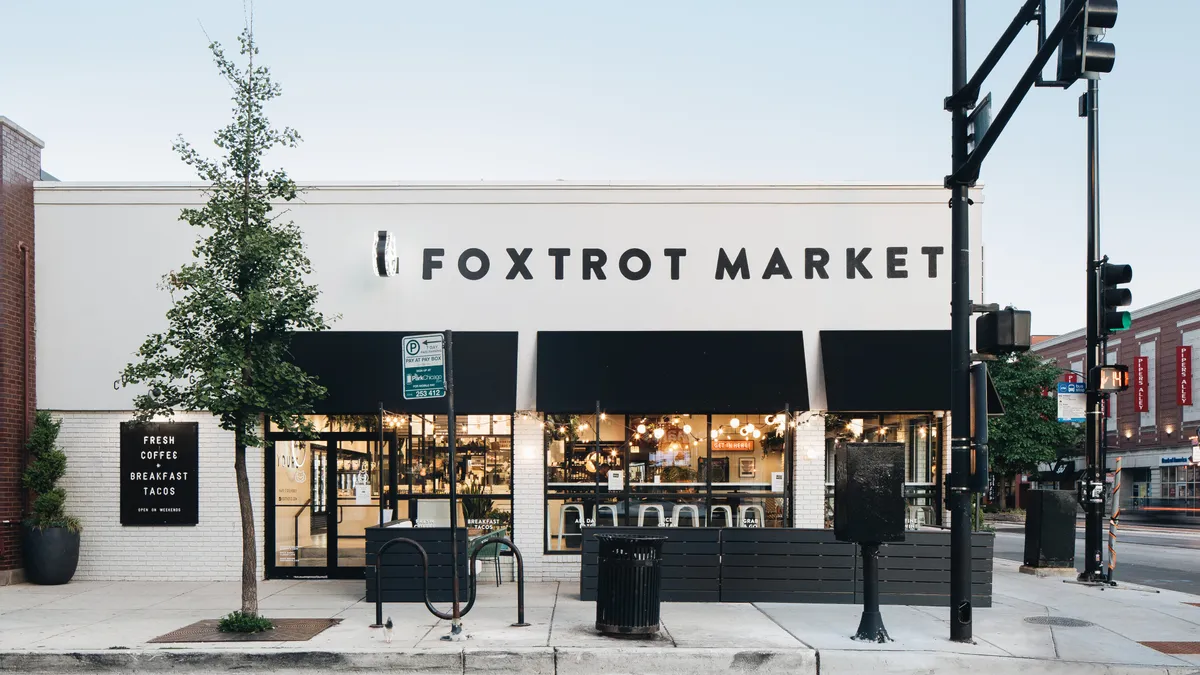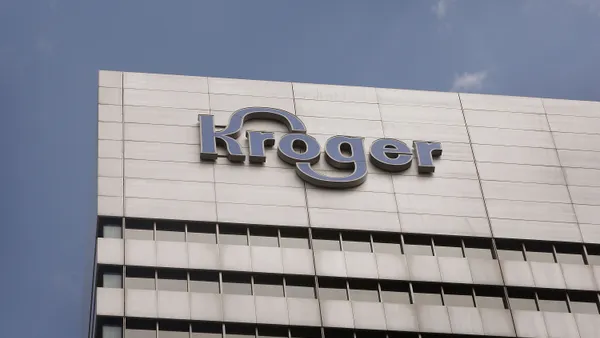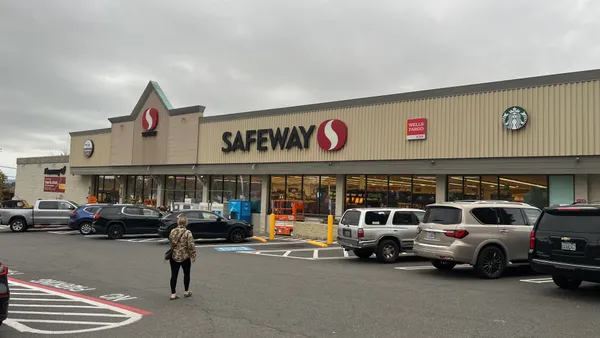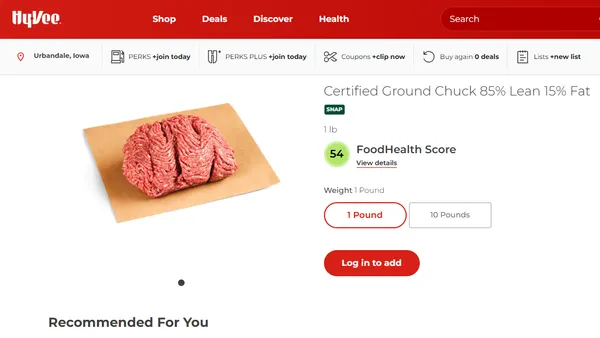Dive Brief:
- Foxtrot Market has closed a $42 million Series B round of fundraising from a group of investors led by food tech investment firm Almanac Insights and Monogram Capital Partners, which has put money into companies like Chewy.com, Oatly and Vive Organic, the upscale convenience store chain announced in a press release Monday. The company said it plans to use the funds to double its store count by the end of 2021.
- The retailer also said it has hired three new executives: Chief Operating Officer Sumi Ghosh; Scott Holloway, who was named senior vice president of delivery; and Caroline Barry, who is now vice president of strategy.
- Foxtrot is ramping up its store count in order to boost delivery operations and gain new shoppers in its existing markets.
Dive Insight:
Rather than introduce its upscale convenience stores to a raft of new cities, Foxtrot is focused for the time being on increasing store density in existing markets — a move that will beef up its e-commerce operations, which account for roughly half of its revenue.
Foxtrot started as a delivery company back in 2014 and it relied on that digital expertise to navigate sky-high demand over the past year, CEO and co-founder Mike LaVitola said in a recent interview. The company currently operates eight stores in Chicago and two in Dallas, and said plans to add as many as nine stores in those cities. Foxtrot also plans to begin operations in March in Washington, D.C., where it has announced two stores.
By building more stores in its existing markets, Foxtrot, which touts its ability to deliver any of the products it carries in less than an hour, is offering more delivery points to increase its service area and speed up fulfillment times in areas where it has a foothold.
“We look primarily for delivery interest wherever we go,” LaVitola said last summer.
In June, when it disclosed the Washington locations, Foxtrot said it was working on opening in two major markets on the East Coast plus one in the south-central U.S., according to CSP. For right now the nation’s capital, where Amazon Go is also planning to soon land, is the only announced new market for Foxtrot.
Foxtrot will have to navigate a tricky landscape for urban store development. Although e-commerce demand has spiked in residential areas, stores can no longer rely on a steady stream of office workers to fuel sales. Green Zebra Grocery, an upscale grocery chain on the West Coast, closed stores and laid off employees after store traffic dropped sharply last year.
Foxtrot launched a nationwide delivery service this year featuring gift baskets stuffed with niche grocery products. It also launched pickup from its stores. The company does around a third of its sales in private label, and stores carry around 800 SKUs. Foxtrot’s sales and app downloads both more than doubled in 2020, according to the press release.
In addition to Almanac Insights and Monogram Capital Partners, investors in the c-store upstart’s fundraising round include former Whole Foods CEO Walter Robb; David Chang, founder of the Momofuku restaurant group; Nicolas Jammet, co-founder of fast casual restaurant chain Sweetgreen; and the University of Chicago.
The retailer's new executive hires bring experience from a range of big-name digital, retail and restaurant brands. Ghosh spent more than 12 years at Starbucks, including most recently helping manage the company’s Reserve and Roastery stores, according to his LinkedIn profile. Holloway worked in operations and brand development roles with Instacart for nearly six years, while Barry served as director of strategy of Sweetgreen, and before that worked in market planning for Walgreens.













